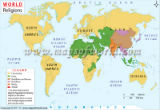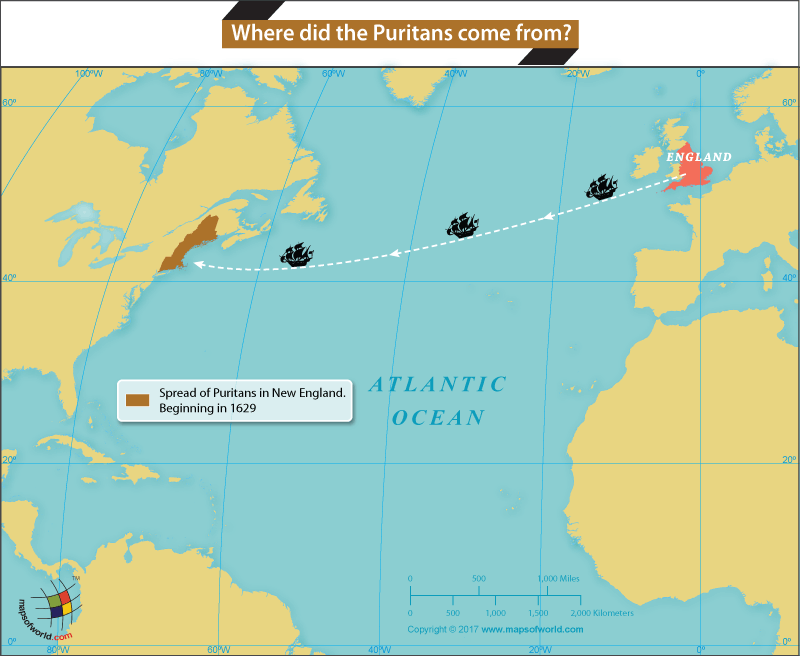Where Did the Puritans Come From?
The Puritan Faith (Puritanism) started as a reform movement in England in the early 1600s. The Puritans were a group of English Protestants, who believed that the Church of England should be ‘purified,’ from Catholic practices. Puritanism as a faith finds its origins in the English Reformation. The Puritans, however, were dissatisfied with the extent of the transformation of the Church of England. By 1629, a number of Puritans, discouraged by the criticism and failure to produce acceptable reforms in the Protestant Church of England, decided to leave their country, and find a new home in the colonies. They left for a place where they would be far from persecution, and would be free to practice their form of Christianity without the influence of Catholicism.
Almost a decade after the Pilgrims landed, and set up a colony in Plymouth, Massachusetts (United States), this group of Puritans made their way to Massachusetts Bay. The colony later spread to parts of modern-day Connecticut, Rhode Island, Maine, and New Hampshire.
The Pilgrims who initially landed in Plymouth were separatists, meaning that they sought an independent identity, and broke away from the Church of England, but the later Puritans who came to the US were non-separatists who merely sought reforms in the Protestant faith.
The Puritans who moved to the US, many of whom were followers of John Calvin, were intense in their faith and religious practices. Puritans believe that God and his ways are essentially inscrutable, and despite the efforts of the faithful, salvation is not guaranteed. It is God, and God alone, who chooses the eligible for salvation. Moral principles of Puritanism are very rigid and inflexible. Eventually the burgeoning Puritan settlements fragmented, giving rise to a number of related Christian communities such as the Antinomians, Baptists, Presbyterians, Methodists, and Quakers. By the early 18th century, Puritanism had lost much of its sway in the face of a steadily evolving socio-cultural scenario.
Today the word ‘Puritan,’ is now not only used to refer to those who practice the Puritan faith, but also to someone who practices moral austerity and holds rigid beliefs.
Related Maps:









